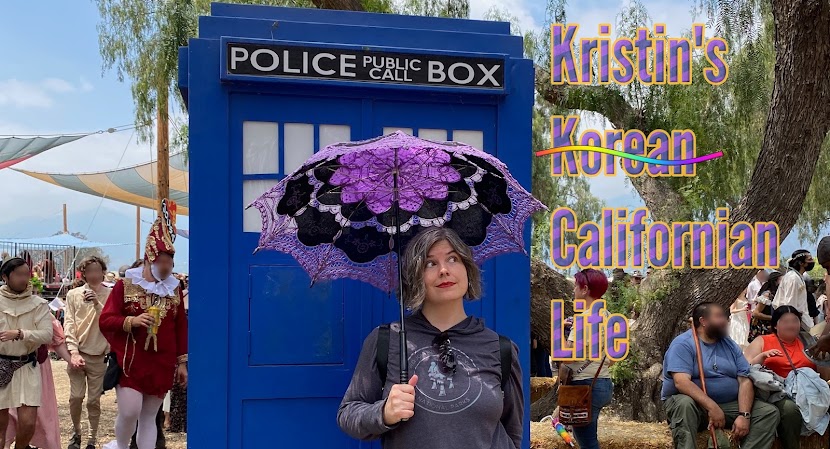Many people who come to Korea find that they can get by with just English. Korean and Japanese, which are grammatically structured almost the same, are much more difficult to learn for English speakers than, say, Latin-based languages. This is because they have absolutely nothing in common with English with the exception of traded words and a few coincidences. For example, in English we say "karaoke" and "sushi", and in Korea and Japan they have adopted words like "coffee" and "computer". One interesting coincidence is that in many languages around the world, the word for "mom" is similar. In Korean, it's "eomma". This is thought to be because the first sounds babies make tend to be incoherent ramblings with a lot of the "m" sound, which is the easiest consonant to make. Japanese is not one of those languages- "mom" is "haha".
한국에 오면 영어만 써도 살 수 있는 것을 알게 된 외국인이 많다. 영어 쓰는 나라에서 온 사람한테 라틴어 관련 된 언어보다 문법이 비슷한 한국어와 일본어가 훨씬 힘들다. 왜냐면, 영어랑 한국어의 비슷한 점은 서로 받았던 단어나 우연히 비슷한 단어 빼고 아예 없다. 예를들어 미국에서 "카라오케", "스시" 같은 일본어 단어를 쓰고 한국하고 일본에서는 영어에서 온 "커피", "컴퓨터" 같은 단어를 많이 쓰인다. 새계에 많은 언어로 "엄마"라는 단어가 이상하게 아주 비슷하다. 영어로는 "맘"이다. 아기들의 젓말이 대부분 그냥 의미 없는 소리 이고 그소리 중에 미음 발음이 만들기 쉬워서 많이 나온다고 생각이 있다. 일본어로는 오히려 "하하"라고 한다.
Anyway, I brought this up because I don't want to sound like I think English speakers who come here and don't learn Korean are idiots. If languages just aren't your thing, Korean and Japanese are just about impossible to learn. Fortunately for me, languages are my thing. I enjoy learning them and linking them to the culture as a whole. For example, Korean culture is traditionally communalistic, meaning that the whole is more important than the individual (as opposed to Western individualistic culture). I think this is related to the fact that the subject is optional and often omitted in Korean sentences, whereas it is mandatory in English sentences (with the exception of the command form). Languages are a hobby of mine. So it's no wonder that after 3 years in Korea I've reached a level of fluency which allows me to participate naturally in social settings and even understand about 80% of TV. Although I don't really watch TV much.
하여튼 그 말 하는 이유가 한국어 안배우는 한국에서 사는 외국인이 바보라고 말 하고 싶지 않다. 언어 재능이 타고났지 않았으면 한국어와 일본어 배우는것이 거의 불가능하다. 나는 해운이 언어 재능이 타고났다. 언어를 배우고 전체 문화랑 어떤 관련 인지 생각하기 좋아한다. 예를들어 한국은 전통적으로 공동체주의의 사회라고 개인보다 대형이 중요하는 문화가 있다 (반대는 미국같이 개인주의의 사회). 한국어 문장에 주어를 필요하지 않고 보통 지워도 돼는데 영어 무법으로는 주어 지우면 안됀다. 나한테 언어가 취미다. 그래서 당연히 3년동안 한국에서 살면서 편하게 한국인과 소통도 되고 티비 보면 80%정도 이해할 수 있는 수준으로 늘었다. 티비 많이 안보는데.
Rather than just tell you my Korean has improved, I have translated this entire post and if you also know Korean you will see that I'm not just faking or pressing "translate" in Google Translate and then copy-pasting.
그냥 한구어 실력이 늘었다고 말하는것보다 보여주는것이 더 큰 의미 있으니 이 포스트 다 직접 번역을 했다. 본인도 한국어를 할 수 있으면 거짓말 치거나 구글번역에 "번역하기" 늘어서 봍어넣기만 하는 것이 아닌 사실을 알겠다. ~영어로는 안썼지만, 여기 실수 많잖아요. 아직 많이 모른다는 느낌이 들어서 자랑하고 있는걸로 보지마세요.
The point of this is to show that learning Korean is possible if you like it and keep at it.
이 포스트의 목표가 한국어를 좋아하고 배우려고 계속 노력하면 배우기 가능한다고 다른 외국인들한테 보여주는 것이다.

No comments:
Post a Comment